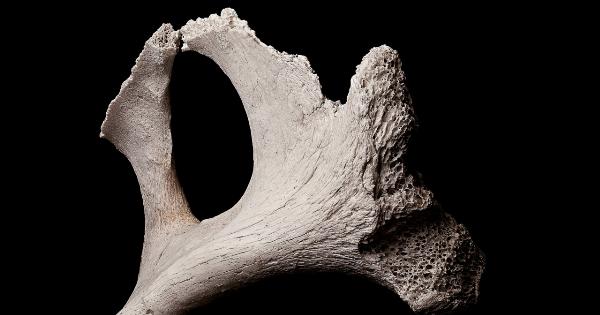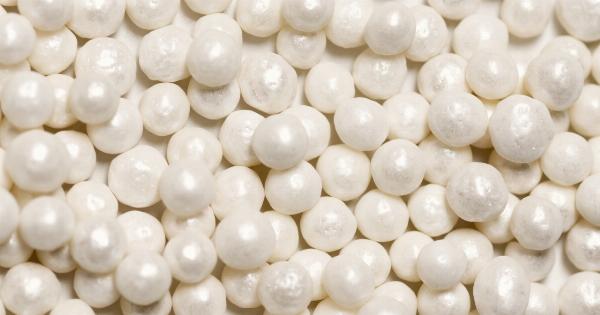Probiotics have gained significant attention in recent years for their potential health benefits. These live microorganisms are commonly known for promoting healthy digestion and boosting the immune system.
However, emerging research suggests that probiotics may also play a role in preventing bone loss and improving bone health. In this article, we will explore the relationship between probiotics and bone loss and examine the evidence supporting their effectiveness.
Understanding Bone Loss
Bone loss, also known as osteoporosis, is a condition characterized by a decrease in bone density and strength, making the bones more fragile and prone to fractures.
It primarily affects older adults, particularly women after menopause, but can occur in people of all ages. Several factors contribute to bone loss, including age, hormonal changes, genetics, and lifestyle choices.
The Role of Probiotics
Probiotics are beneficial bacteria that naturally reside in the gut. They help maintain a healthy balance of bacteria in the digestive system, aiding in digestion and nutrient absorption.
Recent studies have suggested that probiotics may also influence bone health through several mechanisms.
Effect on Bone Mineral Density
Bone mineral density (BMD) is a measure of the amount of minerals, primarily calcium, present in the bones. It is an essential indicator of bone health and strength.
Some studies have shown that certain strains of probiotics may increase BMD and reduce the risk of bone loss.
Enhancing Calcium Absorption
Calcium is a crucial mineral for maintaining healthy bones. However, merely consuming adequate calcium is not sufficient if it is not efficiently absorbed by the body.
Probiotics have been shown to enhance calcium absorption in the gut, ensuring that an adequate amount of calcium is available for bone formation and strength.
Regulating Bone Turnover
Bone turnover is a continuous process of breaking down old bone tissue and replacing it with new bone tissue. When the balance between bone resorption and formation is disrupted, it can lead to bone loss.
Some research suggests that certain probiotics may help regulate bone turnover, reducing the rate of bone loss and promoting better bone health.
Stimulating Vitamin D Production
Vitamin D is essential for calcium absorption and bone health. Probiotics may stimulate the production of vitamin D in the gut by influencing the gut microbiota. This, in turn, can enhance calcium utilization and promote better bone health.
Anti-Inflammatory Effects
Chronic inflammation in the body can contribute to bone loss and osteoporosis. Probiotics have been shown to possess anti-inflammatory properties, reducing inflammation and potentially protecting against bone loss.
Evidence from Animal Studies
Several animal studies have provided promising results regarding the role of probiotics in bone health.
For example, a study on rats found that a specific strain of Lactobacillus probiotics significantly improved bone mineral density and prevented bone loss. Another study on mice showed that treatment with certain probiotics protected against age-related bone loss.
Human Clinical Trials
While animal studies are encouraging, human clinical trials provide more reliable evidence. Several studies have investigated the effects of probiotics on bone health in humans, but the results are mixed.
Positive Findings
A clinical trial involving postmenopausal women found that daily supplementation with a combination of Lactobacillus acidophilus and Bifidobacterium animalis for one year significantly increased spine BMD compared to a placebo group.
Another study demonstrated that consuming a yogurt fortified with Lactobacillus and Bifidobacterium strains for four weeks increased calcium absorption.
Inconclusive Results
Some studies have not found a significant effect of probiotics on bone health. For example, a study on older women found that daily probiotic consumption did not improve BMD or markers of bone turnover.
Similarly, a trial involving postmenopausal women reported no significant changes in bone-specific markers following probiotic supplementation.
The Importance of Strains
It is important to note that not all probiotics have the same effects on bone health. Different strains and combinations of strains may have varying outcomes.
Further research is needed to determine the specific strains and dosages that are most effective in preventing bone loss.
Conclusion
While the current evidence suggests that probiotics may have a positive impact on bone health and potentially prevent bone loss, more research is needed to establish the exact mechanisms and determine the most effective strains and dosages.
Probiotics offer a promising avenue for maintaining bone health, but it is always advisable to consult with a healthcare professional before starting any new supplement regimen.































